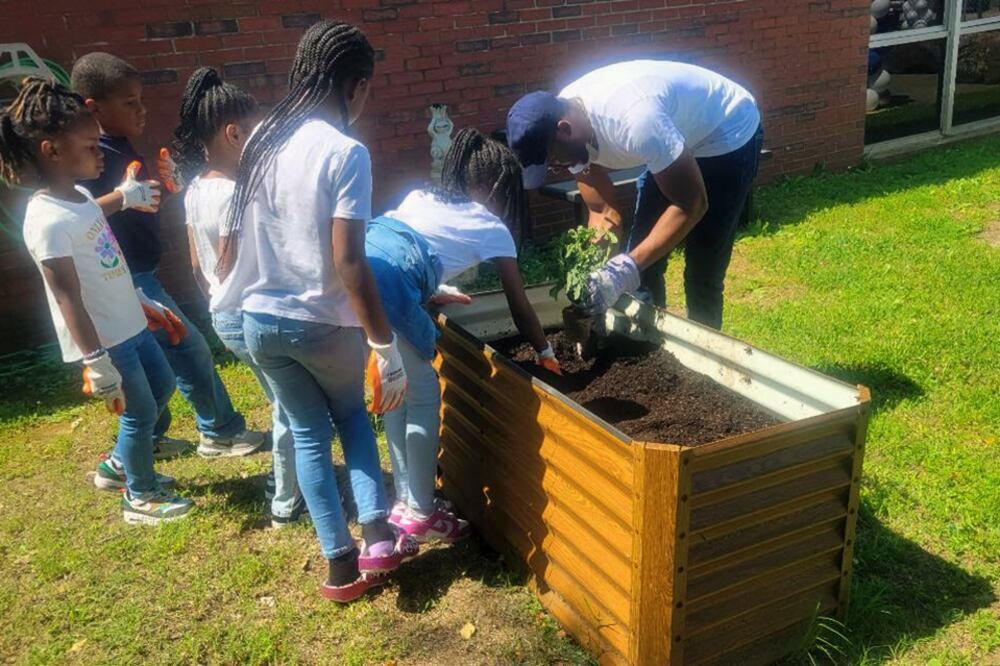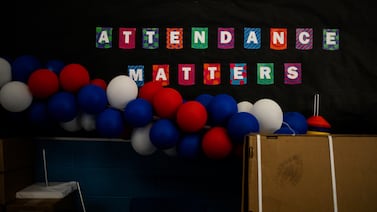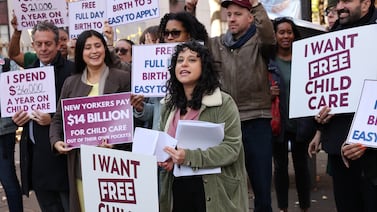Jeromy Payne’s forebears grew crops in Senatobia, Mississippi, so he always had a link to the land.
Now Payne is using that ancestral connection to teach reading to third graders at John P. Freeman Optional School in Memphis.
The 30-year-old English Language Arts and social studies teacher accomplishes that through project-based learning, or PBL. That means his students develop projects dealing with real-world problems that relate to their studies.
Payne’s students read “The Boy Who Harnessed the Wind,” about a Malawian boy who built a windmill to bring electricity to his village. Electricity enabled his family to pump water to irrigate their farm and end a famine. The book also emphasizes the importance of farming.
The assignment led Payne, who holds a degree in social work from the University of Mississippi and began his career as an education assistant, to help his students develop a farmer’s market. That way, they could see how food is grown — and bring life to the reading lesson.
His work recently earned him the John Larmer Lifelong Learning Award from PBLWorks, a Baltimore-based organization that recognizes teachers for exceptional work in project-based learning.
“I was extremely honored to receive the award,” said Payne, who was among three educators given the honor last month at the PBL World Conference in Napa Valley. “[The ceremony] was touching and warm.”
Freeman principal Key Coleman told Chalkbeat that Payne is a modest man and an inspiring educator.
“He reached out to the local USDA, he reached out to a farmer in Sledge, Mississippi, and we took kids to a restaurant, Belly Acres, where they serve local produce,” Coleman said.
“The kids had been saying that they wanted to get outside more, so we renovated the learning garden. We’re teaching kids to think globally and act locally.”
Payne, who is married and has a 2-year-old son, recently talked to Chalkbeat Tennessee about how he approaches his work.
This interview has been lightly edited for length and clarity.
Your degree is in social work. How did you wind up teaching?
I’d say I was naturally drawn to teaching. I thought I could have more impact if I was a teacher. That’s why I took the opportunity as an education assistant, to see if I was ready for an opportunity to go into the classroom.
Tell me about project-based learning and how you and the students came up with the farmer’s market idea.
Project-based learning is a teaching strategy that allows learning to take place while solving problems in the community. J.B. Freeman offers a specialized program for students who are interested in STEM, project-based learning, and advanced academics.
[The farmer’s market lesson] involved students learning about farm-to-table and understanding where food comes from, because we do know that there is a lack of students and adults who know where food comes from. If you ask a student where food comes from, they’ll say a local grocery store as opposed to what comes along with that, agriculture. Many of them also live in areas where there is food insecurity, where you might have a Dollar General there, or a Kroger there, but that Kroger might not have the same quality of food that a Kroger in another area might have.
How did you make the project happen?
We’ve been able to receive grants and do some great things with our learning garden. We transformed the entire learning garden. Currently as we speak, they are growing some things there and getting some things ready for harvest. Third graders led the effort, but it’s a project that allowed the entire school to be involved.
How did your background in Mississippi influence the project?
I do have a natural love for earth science, even though I am an ELA and social studies teacher. But I’m an outdoor person. I love gardening and being outside. On my father’s side, we actually own land where they cropped, so that they could have food for themselves. So I do have that natural background.
So far, what is your greatest accomplishment as a teacher?
Bringing experts into the building, seeing the growth of students over time, seeing them develop, and understanding that all children are different and learn differently — and using that for their benefit and not for mine.
What’s the best advice you’ve ever received?
Teaching is a calling, and we should treat it as such. Your heart must be involved.
How do you spend your spare time?
I can be a recluse, but I like the outdoors. I like exercising outdoors and I like cycling. If you see me doing something, it’ll likely be something outdoors.
Tonyaa Weathersbee is the former bureau chief for Chalkbeat Tennessee. Reach her at tonyaaweathersbee@yahoo.com.







